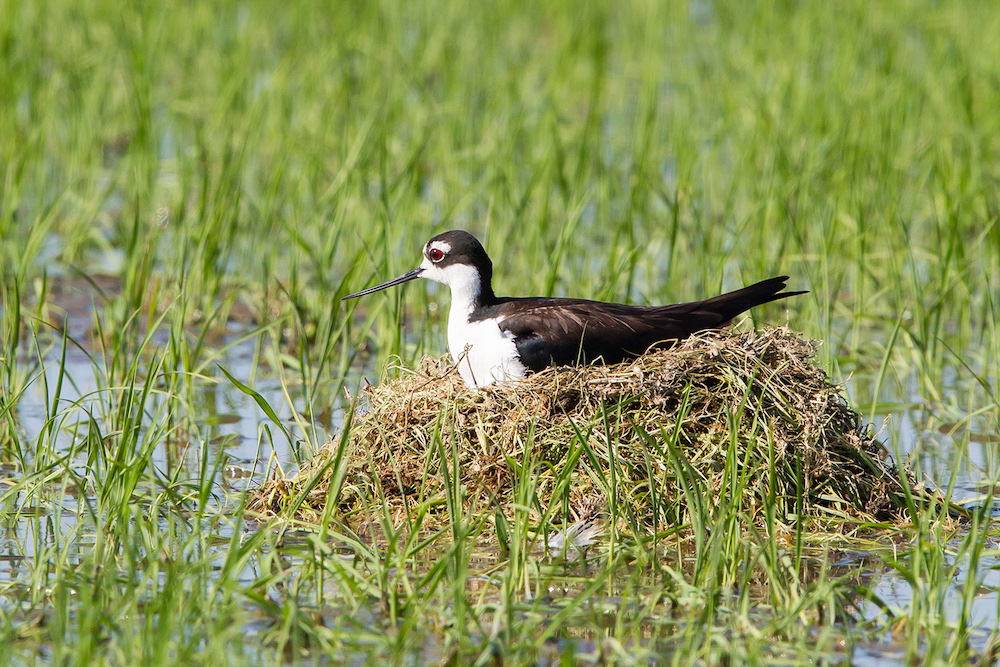Summer Nesting Season
By Luke Matthews
Summer is a special time in rice country. As the rice crops emerge, growing up through the water, they create excellent habitat for a variety of nesting birds. In early summer, species like American Avocets, Black-necked Stilts, and Black Terns build their nests directly in growing rice fields. These species prefer to build their nests in fairly exposed areas with good visibility. They also typically build their nests in loose colonies, which serve to help increase vigilance and predator detection.

Mallards, Gadwall, and American Bitterns utilize rice fields later in the summer once the crop has grown taller. Although these species do not typically nest directly in growing rice fields they will nest nearby. Once their young have hatched, they bring them into the rice fields where they find safety under the cover of tall rice plants. Furthermore, these fields provide ample food for the young birds, which primarily eat amphibians, insects, and other invertebrates.
Marsh Wrens, Red-winged Blackbirds and Belted Kingfishers also nest in rice country, although they commonly nest in the water conveyance canals and not directly in rice fields. Red-winged Blackbirds nest in colonies and they weave simple nests bowls onto upright stalks of aquatic vegetation or in shrubs. Wrens also utilize upright vegetation to build their nests, however, their nests are much more intricate. Marsh Wrens build complex oval-shaped woven nests, which are totally enclosed except a small opening near the top. In contrast to wrens and blackbirds, Belted Kingfishers nest underground. There birds dig long horizontal tunnels in the banks of canals where they lay their eggs and tend to their young.
In addition to all of the birds that I just highlighted, there is a wide range of other species that nest in trees throughout rice country. If you have an opportunity to get out in the field this summer, keep an eye out for nesting birds.
Luke Matthews is the Wildlife Programs Manager for the California Rice Commission






